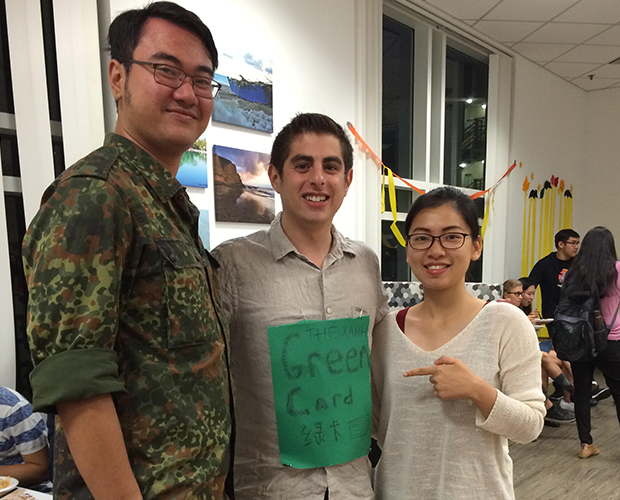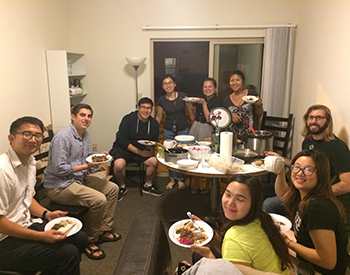Why GPS: A niche in life

As part of an ongoing series, we give students the creative liberty to opine on their favorite memories from the School and “why GPS” is a solid fit to pursue their graduate education
Nov. 20, 2017 | By Ha Pham, 2019 MPP candidate | GPS News
I have the confidence to believe that we all refuse to witness future generations condemned to a planet which is beyond fixing. Therefore, environmental science, specifically environmental modeling, became my sole choice for an undergraduate field of study as it fit my desire to prevent environmental deterioration.
Nonetheless, I learned that the stream and drivers of policy, and policy itself, was the major key to changes and development of nations. With my new background in environmental sciences, I decided to get involved in the policymaking process to be able to manage human activities and their effect on the natural world.
After graduation, I went to work for the Institute of Strategy and Policy for Natural Resources and Environment under the Vietnam Ministry of Natural Resources and Environment, where I realized there existed a gap between scientists and policymakers.
I believe that there should not be a wall but rather a bridge between scientists and policymakers for sustainable development. Identifying policy solutions to environmental challenges requires a command of natural and social sciences, alongside an understanding of relevant policy processes.
This was the main reason why I sought to pursue graduate school in the U.S. Where is a better place to learn about policymaking than in the U.S.?
The Fulbright program offered me a great opportunity to come to the U.S. in order to realize my goals, and more importantly, to enhance mutual understanding between Vietnam and the U.S. The UC San Diego School of Global Policy and Strategy (GPS) came to my attention on account of its focus on the Asia-Pacific region and program design, from which I can acquire profound knowledge of policymaking processes and broad-spectrum analytical competency, especially quantitative methods and skills.
Needless to say, GPS has leading experts and excellent professors in the fields. In the first quarter, I was impressed by Professor Mikkal Herberg’s advanced understanding of energy issues, by passionate lectures of Professor Gordon McCord, by Professor Teevrat Garg’s sense of humor and by the way Professor Zoltan Hajnal pushed us to reach our fullest potential.
Moreover, it would be a mistake not to mention the roles of teaching assistants who are also your friends and always open to your questions. It seems like there is no reason for GPS students not to perform well.
The School’s summer Prep Program prior to the academic start was beyond my expectations in terms of better preparing me for the beginning of Fall quarter and also planning for the job hunt.
 I also learned a good deal from Career Services’ seminars on how to successfully brand and market myself as well as how to pay attention to details in the application process. The team never fails to show their active support and enthusiasm when assisting students to find suitable internships and jobs even before graduation.
I also learned a good deal from Career Services’ seminars on how to successfully brand and market myself as well as how to pay attention to details in the application process. The team never fails to show their active support and enthusiasm when assisting students to find suitable internships and jobs even before graduation.
Last but not least, I love San Diego. It is one of the most beautiful and multicultural cities in the U.S. The weather and beaches are wonderful, and I have had the chance to meet people from nearly all over the world.
It is a perfect place for promoting understanding between different countries and cultures. I enjoyed a conversation about the Vietnam War with a man I met on the street in downtown San Diego. I also enjoyed when I talked with a UC San Diego student I met at a party about how Vietnam’s economy has risen compared to that decades ago.
The Fulbright program and my new friends here at UC San Diego have taught me how to step out of my comfort zone and approach differences to enrich my human experience. I firmly believe GPS is a great choice for international students, especially from Pacific Rim countries, regarding academic achievement and culture exchange.

